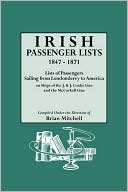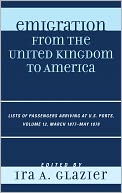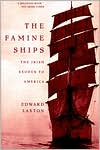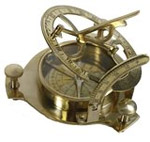Ireland
° Ireland:
° Belfast
° Giant's Causeway
° Bristol
° Cork
° Dublin ° Fallmore and Blacksod ° Galway
° Limerick
° Londonderry
° Queenstown
° Rosslare
° Waterford
° Home Rule in Ireland
° Irish in America
Londonderry
June 22, 1860, Sacramento Daily Union, Sacramento, California, U.S.A.
The Irish Immigration.
Allusion has already been made through our columns to the unprecedented tide of emigration now pouring into the United States from Ireland. During the mouth of April there arrived at the port of New York 6,055 foreign emigrants, of which number over 3,000 were from Ireland. From April 30th to the 15th May the total number exceeded seven thousand, being nearly at the rate of five hundred per day; and the New York Herald estimates that the emigration for the entire month of May will hardly fall short of 15,000, or one-half the number of emigrants which had arrived during the previous six months. The Irish exodus was so marked a feature in the events of the old world as to attract the attention of the London Times and other prominent journals.
In its issue of May 3d the Times says:
The Irish emigration still continues, at a rate which threatens results far beyond the calculations of the economist, perhaps even the wishes of the statesman. It is no longer the overflow of a vessel full to repletion, but the operation of a syphon which drains to the very bottom. If that syphon may be regarded in any visible form, it is the railway system, which in the eyes of every Irishman appears to have one common terminus across the Atlantic. He sees trains of hopeful, if not happy, faces going off to the Land of Promise, from which friends and relations have sent not only invitations, but the means of accepting them. A train starts to catch an emigrant vessel as regularly as in England to catch a steamer across the channel. The emigrant ships have no longer to peep into every little port to pick up their passengers. They assemble at Cork, and pass in a continuous stream, if it may be so called, across that ocean which, wide as it be, is easier to an Irishman than the gulf which divides him from England. At present it cannot be said that there leaves Ireland as much as the natural increase, but the causes in operation are not unlikely to make it exceed that rate.
The following extract from the Liverpool Times, besides revealing the extent of the emigration movement, also discloses some interesting facts relating to the new arrangements contemplated by the steamship companies in order facilitate the exodus:

With the extraordinary exodus which, as we learn from the most authentic sources, is at present taking place from Ireland, how are we to account for the fact that the emigration through Liverpool has latterly exhibited a constant tendency to decrease ? It is to be attributed to the fact that Irish emigrants are now embarking in great numbers direct from the different ports in Ireland. The Galway route, so far as emigrants are concerned, has been highly popular from the very commencement, and the steamers departing thence have been crowded every voyage. Since some of the ocean mail steamers have began to call at Queenstown, Cork has also become a great outlet for emigrants, and it is quite usual for these vessels to ship there from 300 to 400 steerage passengers on almost every outward voyage. When the Cunard vessels likewise call, as it is now appointed that they shall, there will be a marked increase again, and one that is certain to be felt in Liverpool. Sailing ships leaving Irish ports are also found to have a preference, and emigrant vessels may now be found regularly departing from Londonderry, Waterford, Belfast and Wexford. It is not entirely the new facilities offered which have led to the diversion from Liverpool of this important branch of trade. There are other causes, and not the least prominent is the robbery and rascality so frequently practiced upon emigrants by lodging house keepers, runners, and the other harpies who fatten upon the trade. We begin to see the result; and it, is one which should be pondered well.
There can now be no question that the exodus from Ireland this season is likely to be as marvelous in its extent as that which followed upon the terrible famine of 1846-7. The provincial papers teem with the subject, and the farmers remaining at home have taken alarm at the almost certain prospect of a scarcity of laborers and the consequent enhanced price of labor. This emigration panic is to be traced to the simple fact that every mail from America brings large remittance for passage and outfit to relatives in the old country, who, of course, are willingly tempted to better their condition in a country which offers a larger field for industrial enterprise.
There is much more in the suggestion that this "emigration panic " is to be traced to the large remittances which every steamer brings from America than appears at first sight. Joined with the fact to which reference was made in a previous notice of this subject, that steam is now being made available for the first time to any considerable extent, in transporting emigrants across the Atlantic the suggestion affords the readiest clue by which to solve the problem of the present movement.

No laboring class in America has been so steadily prosperous of late years as the Irish, and particularly the female portion. They not only supply the want of society, widening every year, for domestic servants, but they have gradually supplanted American born workingmen and women in the manufacturing towns of New England, and in the trades of large cities. Their prosperity is not only the common result of frugality and industry, but with the recovery of the country from the effects of the last panic, the first benefits have generally accrued to the poorer class of laborers, particularly in the large commercial cities, such as New York, where building and rebuilding is going forward this Spring more actively than ever was known before. And while our Irish laborers and domestics have been paid good prices, the sober and industrious among them have in general hoarded their earnings, as it is their well known custom to do, for the purpose of assisting their relatives in the old country either to better their condition at home, or undertake the journey to America. As a provision for the latter contingency the generous remittances made this year, stimulated in great part no doubt by the excellent facilities for the conveyance of emigrants across the Atlantic, are fully sufficient, to account for what the Times has called the " Irish exodus."
Among the States from which this material aid has been sent across the ocean, California occupies a foremost place. It is hardly egotism to attribute the stir in Ireland mainly to California gold. Setting aside the fact that our State has for the past eight or ten years, directly and indirectly by the drain of her own heart's blood, infused into the operations of Eastern trade and the growth of improvements their quickening: force, it is equally indisputable that her gold has gone forth on errands of mercy to relieve the distresses, and make endurable the poverty of thousands of homes in the Old World. To appreciate the extent to which this relief may have been afforded, let it be considered how large a proportion of our mining population, from the beginning of gold discoveries here, has belonged to the laboring class of European countries; also that our household laborers and domestics have been chiefly Irish, and that the average prosperity both in the mines and in the cities, of these foreigners has at all times been greater than among our own countrymen. For the last four or five years the highest wages in this country have been paid for domestic service. While the price of labor in ordinary pursuits, as well as the salaries in professional offices, have greatly decreased within that time, servant hire remains as high as it was in 1855. And it is safe to say that by no laboring class in our midst are the remittances to the East so large as from persons in domestic employ.
The New York Tribune professes to see nothing in the movement of the Irish to America to confirm the anticipations of the London Times. On the other hand it is asserted by the Tribune (though without figures to sustain the assertion) that the German emigration is more than an offset for the tide setting across from Ireland. Furthermore, "the annual increase of our population by natural means is now so great that the annual Irish accession is but a trifle in comparison. The idea, therefore, that the Irish is to become the leading and predominant element in our population seems to be quite destitute of foundation, even supposing that the whole six million of Irish should emigrate in a body, leaving their native country to be resettled more to the satisfaction of the Times.
July 30, 1886, Los Angeles Herald, Los Angeles, California, U.S.A.
NOT SATISFIED
Ireland Objects to the New Lord Lieutenant
Dublin, July 29. United Ireland to-day says: The truce with the landlords is shattered but the Irish people have not the least intention to estrange the English masses. It should be impossible to produce a more eloquent example of ramming English rule down Irish throats than is afforded in the Marquis of Salisbury's appointment as the Irish Viceroy of the Marquis of Londonderry, inheriting as he does the blood and name of the cutthroat and heinous Castlereagh.
The Freeman's Journal says the appointment of Lord Londonderry to be Viceroy of Ireland and of Sir Michael Hicks-Beach to be Chief Secretary is ominous of coercion. Irishmen must be prepared for this. The Loyalist press is delighted with the appointment of Londonderry to the Lord Lieutenancy.
February 22, 1898, Los Angeles Herald, Los Angeles, California, U.S.A.
The Irish Question
 |
| Spencer-Churchill, Balfour, Drummond-Wolff and Gorst Sir Leslie Ward |
In the house of commons today, Mr. Balfour, speaking of the proposed measure concerning Ireland, said he believed it would work through failure to success, which would be the beginning of better and brighter days for Ireland. The government, Mr. Balfour continued, proposed that the local administration be distributed between county councils, urban and rural district councils, and boards of election, the election of which would be by parliamentary franchise, with the addition of peers and women.
The qualifications and disqualifications for election of the councilors would be the same as In England, except that minister of religion would be disqualified from sitting in the county or district council, the government acting therein In accordance with precedent.
For the sake of convenience, Mr. Balfour further explained, the boundaries of the existing unions and also the counties, would be modified, and the county councils would take over the duties of grand Juries, but only in fiscal matters, and would not include criminal Jurisdiction or questions of compensation for malicious injuries. (Irish "Ohs!") The elections for county and district councils would be triennial and all would retire together. The councils would be the sole rate collecting authority, and would control the expenditures. They would also be responsible for dealings with exceptional distress and would decide when the request of boards of guardians for outdoor relief should be granted Dublin, Belfast, Cork, Londonderry Limerick and Waterford would be constituted Independent county councils.
The county would be responsible for half the extra expenditure. Mr. Balfour also pointed out that the bill provided that the occupier was liable to both the county cess and poor rate, whether in a town or rural district, which would involve a readjustment of rents, an equal sum to be granted from the Imperial exchequer as an agricultural grant.
Mr. Balfour said he thought the bill was based on broad Democratic lines.
John Morley, chief secretary for Ireland in the late Liberal administration, welcomed the bill as being "a genuine democratic efforts."
 |
| Charles Stewart Parnell Irish Nationalist Politician in jail with John Dillon |
Mr. Dillon, chairman of the Irish Parliamentary party, said he thought the measure with an immense advance over the bill of 1992, and and fulfilled the promise of the government, but he claimed it was not equal to the English or Scotch measure. Hie pointed out that the control of the police was not given to the councils. Nevertheless, he added, the bill would do much good, and his party would endeavor to executive it in good faith.
John Redmond, the Parnellite leader, also welcomed the bill, but he criticized some points of the measure. He added that if it worked successfully it would be an unanswerable argument in favor of home rule.
Col. Edward J. Saunders, Conservative member for North Armagh, said a majority of the measures, which, he added, offered an opportunity for all classes of Irishmen to unite for a common purpose.
Timothy Healy, Irish Nationalist, praised the bill, and Michael Davitt, Irish Nationalist, threatened opposition to that part of the bill promising relief to the landlords in the shape of an agricultural grant.
The bill eventually passed its first reading.
August 8, 1899, Los Angeles Herald, Los Angeles, California, U.S.A.
STORY Of OCEAN MARY BABY
MASCOT OF THE SEA WON A PIRATE'S HEART
The Touch of Nature That Saved a Ship and Crew From Brigandage. Child Grew to Womanhood
 |
| Londonderry |
In the village burying ground at Henneken, New Hampshire, may be seen Irenrnker. N. H., may be seen standing among a dozen slabs of like design a small slate stone, whose inscription, in common with the others, in no manner suggests that the story of the one in whose memory it was yet was different from the ordinary affairs of the hillside pioneer.
It is the grave of Ocean Mary. It was years and years ago that the baby mascot of the sea won a pirate's heart.
Previous to 1720, the year in which the principal events of this narrative occurred, many families of Scotch peasantry crossed the North channel and found for a time homes in the larger towns on or near the coast of Ireland. Thus Londonderry became the residence of a large number of Scotch yeomanry.
In those old times of slow ships and many perils of the sea, it was a far cry from Londonderry in Ireland to Londonderry n the Granite state; still Scotland and the Emerald isle had already sent sturdy pioneers to the new world on the Merrimac.
Tradition, often the true part of history, has failed to save from oblivion the name of the ship which sailed from Londonderry for Boston in July, 1720. but she is said to have been in many respects vastly superior to others of her class in those times. At any rate, long before she dropped anchor off the picturesque coast, many well-to-do families had prepared for the long voyage. Of those who from the deck of the departing ship watched the green shores of Ireland fade from view a large proportion was not only strong of limb, but thrifty and provident.
Out through Lough Foye, past Inishowen head and beyond Giant's Causeway, with favoring winds, sailed the fated ship.
Among the passengers were James Wilson and his young wife. A year before Wilson married Elizabeth Fulton, and they were now on their way to Londonderry, N. H., where land had been laid out to James Wilson as one of the grantees of that town.
In the small valley settlement to which Wilson and his wife were traveling were friends under whose hands profitable harvests were sure, and a generation was springing up whose influence was to be felt long years after.
Concerning the early part of the voyage of the emigrant ship tradition is nearly silent, although certain fragmentary accounts hint of a protracted calm and following storm of such violence that the vessel was driven from her course. However that may be, it is reasonably certain that the passage was about one-third accomplished when events transpired that made the voyage memorable in the lives of all on board.
One sultry evening the lookout saw on the horizon a sail standing like a gray silhouette against the early using moon. All through the hot summer night the strange craft wore nearer and nearer and when morning came her low hull could be seen like a black shadow under her full set of canvas.
The pirate was within gunshot of the emigrant ship.
To fight or run away was not to be thought of. The slow ship had not a dozen muskets. They simply waited. They had not long to wait, for boats were soon alongside, and, swarming upon the deck, the robbers fell to work as men who knew how to plunder and kill. Crew and passengers were bound, and some were left lying where they were captured, and some rolled into corners, just as suited a momentary freak of the invaders.
None were killed. Valuables were gathered into parcels convenient to be transferred to the pirate ship. The robber captain, going below io search the officers' quarters, threw open the after cabin door with a rough hand but seeing a woman lying in the berth, stopped.
"Why are you here?'' demanded the ruffian.
"See." The terrified woman uncovered a baby's face.
Then the pirate drew near. "Is is a boy or a girl?"
"A girl."
"Have you named her?"
"No."
The pirate went to the cabin door and commanded that no man stir until further orders. Then, returning, he went close to the berth where he woman lay and said gently: "If I may name that baby, that little girl. I will unbind your men and leave your ship unharmed; may I name the girl?"
"Yes."
Then the rough old robber came nearer still and took up the tiny, unresisting hand of the baby. "Mary," was the name the woman heard him speak. There were other words, but spoken so low she could not hear. Only his maker and his own heart knew; but when the child drew its hand away the mother saw a tear on, the pink fingers.
There have been other knights than Bayard. Here was one.
As good as his word, the pirate captain ordered all captives unbound and goods and valuables restored to the places from which they had been taken; then with his crew he left the ship and pulled to his own vessel. But the emigrant ship had scarcely got under way when a new alarm came to them. The pirate was returning.
If they were dismayed at his reappearance they were surprised to see him come on board alone and go directly below to the cabin. There he took from a parcel a piece of brocaded silk of marvelous fineness of texture and beauty of design. Seen at a little distance, the effect of the pattern is as of a plaid combining in wonderfully harmonized tones nameless hues of red and green, softened with lines of what evidently was once white.
Time has, perhaps, somewhat mellowed its color tone, but the richness of its quality is as the richness of pearls. "Let Mary wear this on her wedding day," the pirate said, as he lay the silk on the berth.
The pirate left the ship and was seen no more. In the fullness of time the emigrant ship reached Boston without further incident. There James Wilson died soon after landing. Elizabeth Wilson, with Mary soon after went to live in Londonderry where friends were waiting for them. Here the widow married James Clark, great-great-grandparent of Horace Greely.
For years the people of the little hamlet religiously kept July 28 in thanksgiving for the deliverance of their friends from the hands of pirates.
Some time early in the 1732 Thomas Wallace emigrated to America and settled in Londonderry, where, on December 18 of the same year, he was married to Ocean Mary by the Rev. Mr. Davidson of that town. Her wedding gown was the pirate's silk.
A granddaughter and a great-grand-daughter have also worn the same dress on like occasions Four sons were born to Mary Wallace, three of whom removed to Hennlker. There, on a sightly hill, Robert built the house which in his day was far and away the grandest mansion in all the country around. He was a man of large hospitality and intelligent strength of character.
Here Ocean Mary lived many years, and died in 1814, at the age of 94. Her grave is in the Center burying ground, about half way down the middle walk, a bowshot distant from the railroad station. The curious visitor may, if he choose, read the inscription, on the slate:
"In memory of Widow Mary Wallace, who died February 13, A. D. 1814, in the ninety-fourth year of her age."
The likeness tradition has left of Ocean Mary is that of a woman symmetrically tall, with light hair, blue eyes and florid complexion, together with a touch of the aristocracy of nature and a fine repose of manner in her energetic, determined and kindly ways.
The house is four miles from Henniker village and about the same distance from Hlllsboro. The visitor, if he have an eye for the picturesque, though he regret the decay that has overtaken the old manse, can but be charmed by the beauty of the landscape in the midst of which it is set
1899. World's Fleet. Boston Daily Globe
Lloyds Register of Shipping gives the entire fleet of the world as 28,180 steamers and sailing vessels, with a total tonnage of 27,673,628, of which 39 perent are British.
| Great Britain | 10,990 vessels, total tonnage of 10,792,714 |
| United States | 3,010 vessels, total tonnage of 2,405,887 |
| Norway | 2,528 vessels, tonnage of 1,604,230 |
| Germany | 1,676 vessels, with a tonnage of 2,453,334, in which are included her particularly large ships. |
| Sweden | 1,408 vessels with a tonnage of 643, 527 |
| Italy | 1,150 vessels |
| France | 1,182 vessels |
For Historical Comparison
Top 10 Maritime Nations Ranked by Value (2017)
| Country | # of Vessels | Gross Tonnage (m) |
Total Value (USDbn) |
|
|---|---|---|---|---|
| 1 | Greece | 4,453 | 206.47 | $88.0 |
| 2 | Japan | 4,317 | 150.26 | $79.8 |
| 3 | China | 4,938 | 159.71 | $71.7 |
| 4 | USA | 2,399 | 55.92 | $46.5 |
| 5 | Singapore | 2,662 | 64.03 | $41.7 |
| 6 | Norway | 1,668 | 39.68 | $41.1 |
| 7 | Germany | 2,923 | 81.17 | $30.3 |
| 8 | UK | 883 | 28.78 | $24.3 |
| 9 | Denmark | 1,040 | 36.17 | $23.4 |
| 10 | South Korea | 1,484 | 49.88 | $20.1 |
| Total | 26,767 | 87.21 | $466.9 | |














 Copyright ~ 1998-2018.
Copyright ~ 1998-2018. 